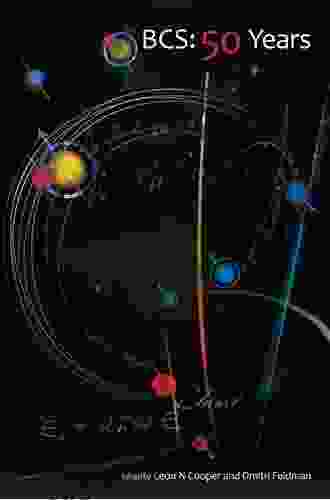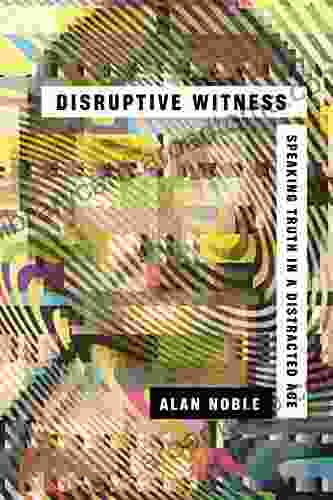BCS 50 Years: Leon Cooper - A Legacy of Scientific Excellence and Innovation

The BCS theory, developed by John Bardeen, Leon Cooper, and John Schrieffer in 1957, revolutionized our understanding of superconductivity. This groundbreaking theory provided a microscopic explanation for the phenomenon of superconductivity, in which certain materials lose all electrical resistance below a critical temperature. The BCS theory has had a profound impact on modern physics, leading to the development of new technologies and applications, such as superconducting magnets and quantum computing.
Leon Cooper played a pivotal role in the development of the BCS theory. His contributions were recognized with the Nobel Prize in Physics in 1972, which he shared with Bardeen and Schrieffer. In this comprehensive biography, we will explore the life and work of Leon Cooper, from his early days as a young scientist to his groundbreaking research and lasting legacy in the field of physics.
4 out of 5
| Language | : | English |
| File size | : | 7892 KB |
| Text-to-Speech | : | Enabled |
| Screen Reader | : | Supported |
| Enhanced typesetting | : | Enabled |
| Print length | : | 586 pages |
Early Life and Education
Leon Cooper was born in New York City on February 28, 1930. He developed an early interest in science and mathematics, and he excelled in his studies throughout his childhood. After graduating from high school, Cooper attended Columbia University, where he earned a Bachelor of Arts degree in physics in 1951.
Following his graduation from Columbia, Cooper continued his studies at Harvard University, where he earned a Doctor of Philosophy degree in physics in 1954. His doctoral thesis, "The Theory of Superconductivity," provided a significant contribution to the field and laid the foundation for his future work on the BCS theory.
The Development of the BCS Theory
In the early 1950s, the phenomenon of superconductivity was still poorly understood. Scientists knew that certain materials, such as lead and mercury, exhibited zero electrical resistance below a critical temperature. However, they did not have a satisfactory explanation for this behavior.
Cooper began working on the problem of superconductivity in 1956, while he was a postdoctoral researcher at the University of Illinois at Urbana-Champaign. He soon realized that the key to understanding superconductivity lay in the interactions between electrons within the material.
Cooper's breakthrough came when he developed a theory that described how electrons could pair up to form Cooper pairs. These Cooper pairs are bound together by a weak attractive force, which is mediated by the vibrations of the crystal lattice. When a Cooper pair is formed, the two electrons move in synchrony, which cancels out their individual magnetic fields. This, in turn, reduces the electrical resistance of the material.
Cooper's theory provided a microscopic explanation for superconductivity, and it was quickly accepted by the scientific community. In 1957, Cooper, Bardeen, and Schrieffer published their seminal paper on the BCS theory in the Physical Review. This paper laid the foundation for the modern understanding of superconductivity and earned the three scientists the Nobel Prize in Physics in 1972.
Later Career and Legacy
After receiving the Nobel Prize, Cooper continued his research on superconductivity and other areas of condensed matter physics. He held faculty positions at several prestigious institutions, including the University of Illinois at Urbana-Champaign, Brown University, and Columbia University.
Cooper made significant contributions to the development of the theory of superconductivity, including the discovery of the Cooper pair and the development of the BCS theory. He also made important contributions to the study of other condensed matter phenomena, such as magnetism and superfluidity.
Cooper's work has had a profound impact on modern physics. The BCS theory is one of the most successful theories in physics, and it has led to the development of new technologies and applications, such as superconducting magnets and quantum computing.
Leon Cooper was a brilliant scientist and a dedicated educator. He made significant contributions to our understanding of the world around us, and his legacy will continue to inspire future generations of scientists.
Leon Cooper was one of the most influential physicists of the 20th century. His work on the BCS theory revolutionized our understanding of superconductivity and earned him the Nobel Prize in Physics in 1972. Cooper's legacy continues to inspire future generations of scientists, and his work will continue to have a profound impact on the field of physics for years to come.
4 out of 5
| Language | : | English |
| File size | : | 7892 KB |
| Text-to-Speech | : | Enabled |
| Screen Reader | : | Supported |
| Enhanced typesetting | : | Enabled |
| Print length | : | 586 pages |
Do you want to contribute by writing guest posts on this blog?
Please contact us and send us a resume of previous articles that you have written.
 Book
Book Novel
Novel Page
Page Chapter
Chapter Text
Text Story
Story Genre
Genre Reader
Reader Library
Library Paperback
Paperback E-book
E-book Magazine
Magazine Newspaper
Newspaper Paragraph
Paragraph Sentence
Sentence Bookmark
Bookmark Shelf
Shelf Glossary
Glossary Bibliography
Bibliography Foreword
Foreword Preface
Preface Synopsis
Synopsis Annotation
Annotation Footnote
Footnote Manuscript
Manuscript Scroll
Scroll Codex
Codex Tome
Tome Bestseller
Bestseller Classics
Classics Library card
Library card Narrative
Narrative Biography
Biography Autobiography
Autobiography Memoir
Memoir Reference
Reference Encyclopedia
Encyclopedia Alex Brendan Raco
Alex Brendan Raco K Subramanya
K Subramanya Olivia Telford
Olivia Telford August J Esquire
August J Esquire Alistair Sutcliffe
Alistair Sutcliffe Alan W Petrucelli
Alan W Petrucelli Amanda Nell Edgar
Amanda Nell Edgar Alan Jackson
Alan Jackson Timothy Verstynen
Timothy Verstynen Olumide Oladele
Olumide Oladele Alexandra Weill
Alexandra Weill Alaric Cole
Alaric Cole Lois Hermann
Lois Hermann David Zahl
David Zahl Albert Grandolini
Albert Grandolini Bob Reiss
Bob Reiss Rod Colvin
Rod Colvin Alexander Kolesnikov
Alexander Kolesnikov Paula Munier
Paula Munier Maude Lemaire
Maude Lemaire
Light bulbAdvertise smarter! Our strategic ad space ensures maximum exposure. Reserve your spot today!

 Clark CampbellHow To Save Water Keep Bees Eat From Your Garden And Live More Sustainable...
Clark CampbellHow To Save Water Keep Bees Eat From Your Garden And Live More Sustainable...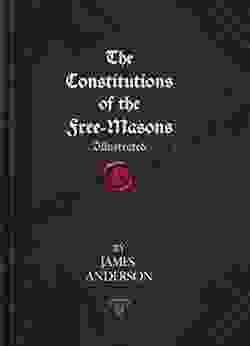
 Jaylen MitchellUnveil the Mysteries of Freemasonry with "The Constitutions of the Free...
Jaylen MitchellUnveil the Mysteries of Freemasonry with "The Constitutions of the Free...
 George R.R. MartinMethodology of Highway Engineering Structural Design and Construction: A...
George R.R. MartinMethodology of Highway Engineering Structural Design and Construction: A...
 Garrett BellDive into the Amazing World of Storytelling with the Squidge Guide to Super...
Garrett BellDive into the Amazing World of Storytelling with the Squidge Guide to Super... Jared PowellFollow ·17.5k
Jared PowellFollow ·17.5k Harry CookFollow ·7.5k
Harry CookFollow ·7.5k Robbie CarterFollow ·5.7k
Robbie CarterFollow ·5.7k Jack PowellFollow ·17.8k
Jack PowellFollow ·17.8k Devon MitchellFollow ·14.1k
Devon MitchellFollow ·14.1k Kevin TurnerFollow ·17.6k
Kevin TurnerFollow ·17.6k Ethan GrayFollow ·11.7k
Ethan GrayFollow ·11.7k Dawson ReedFollow ·9.9k
Dawson ReedFollow ·9.9k
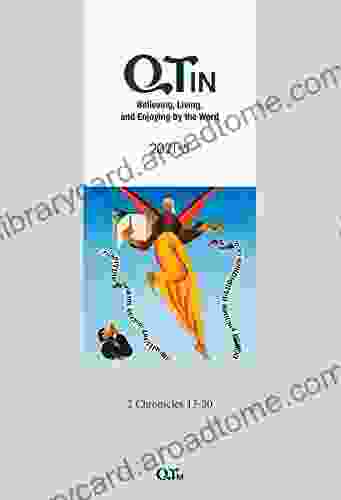
 Joshua Reed
Joshua ReedBelieving, Living, and Enjoying by the Word: Unlock the...
In a world filled with...
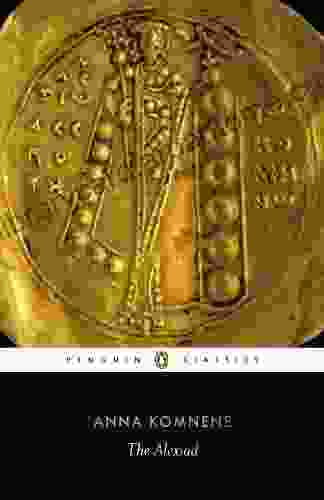
 Cason Cox
Cason CoxUnveil the Extraordinary World of "The Alexiad": A...
Delve into the Heart of Byzantine...

 Junot Díaz
Junot DíazUnveiling the Intricacies of Intellectual Property: Your...
In today's knowledge-driven economy,...
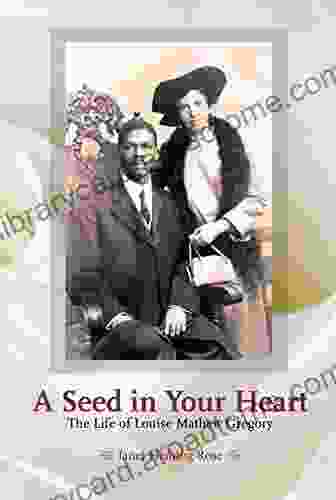
 Aleksandr Pushkin
Aleksandr PushkinThe Life of Louise Mathew Gregory: A Tapestry of Triumphs...
A Woman of Extraordinary Substance Louise...

 Leon Foster
Leon FosterHomemade Lotion For Beginners: Transform Your Skincare...
Step into the world of...

 Terence Nelson
Terence NelsonUnveiling the Secrets of Radio, Television, and Film: An...
: Embarking on a Journey into the...
4 out of 5
| Language | : | English |
| File size | : | 7892 KB |
| Text-to-Speech | : | Enabled |
| Screen Reader | : | Supported |
| Enhanced typesetting | : | Enabled |
| Print length | : | 586 pages |


